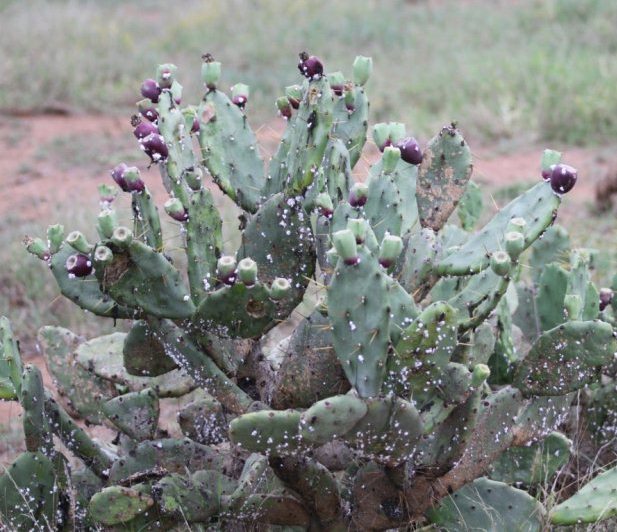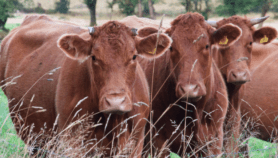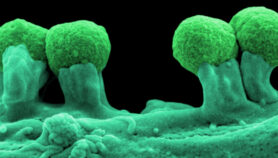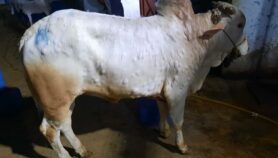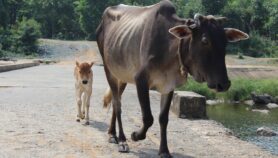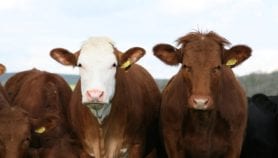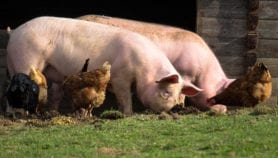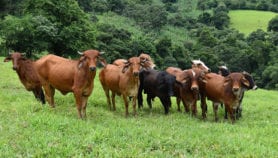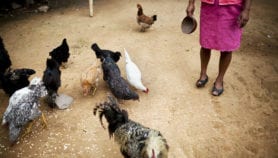By: Maina Waruru
Send to a friend
The details you provide on this page will not be used to send unsolicited email, and will not be sold to a 3rd party. See privacy policy.
An insect that sucks the sap out of cactus plants has been trialled in East Africa to contain the spread of an invasive cactus species that threatens local grazing areas.
The cochineal bug, known as dudu in Swahili, for biological control has been released on farmland in Kenya’s Laikipia region, which is used by Maasai for livestock herding. The trial showed that the bug feeds exclusively on the Opuntia stricta cactus, better known as prickly pear, which has invaded grasslands and drives out local plants used to feed cattle.
The Maasai community in Laikipia partnered with the Centre for Agriculture Biosciences International (CABI) to conduct the trial and halt the spread of the cactus. According to CABI, an non-profit science organisation from the United Kingdom, the trial, which concluded last month, has shown that the dudu bug will not be harmful to native and non-harmful imported plants in the region.
“So when times are good it will continue to displace local plants and make more valuable pasture inaccessible.”
Arne Witt, CABI-Africa
“The cochineal has not been found on other cactus species such as Austrocylindropuntia subulata and Cereus jamacaru that are growing in association with Opuntia stricta,” says Arne Witt, the coordinator of the invasive species programme at CABI-Africa. “In a nutshell, there is no risk.”
The prickly pear cactus was introduced in Kenya during colonial times as an ornamental plant capable of living in arid regions. Since then, the plant has colonised thousands of acres of fragile rangelands in northern Kenya, putting at risk the livelihood of animal herders.
According to CABI the cactus is also suspected to have caused the death of baby elephants after they consumed its fruit, meaning it poses a threat to local wildlife and related income from tourism.
The cochineal bug, which is related to the cicada, was imported from South Africa, where it has been used in Kruger National Park to tackle prickly pear infestations. The insect sucks the sap from the plant, which ultimately kills it.
In Kenya prickly pear infestations have previously been addressed with herbicides and manual removal methods, which are expensive and often create additional environmental damage. Lusike Wasilwa, a researcher at the Kenya Agricultural and Livestock Research Institute (KALRO) says the cochineal bug could be a safer alternative.
However, she adds that the bug will not be released more widely unless it is absolutely certain that it will not kill local plants. “This research must be followed by exhaustive trials to ascertain that any foreign species brought into the country will not negatively impact on local biodiversity,” she says. “Necessary approvals must also be sought.”
But Witt says that work done since has shown that prickly pear would not make a viable alternative to conventional animal feed. Instead, feeding the plant to livestock would greatly increase its spread through defecation and propagation of plant fragments, CABI found.
“It would mean that when conditions are favourable the weed will continue to spread and only when there is a drought will it be utilised,” Witt explains. “So when times are good it will continue to displace local plants and make more valuable pasture inaccessible.”


